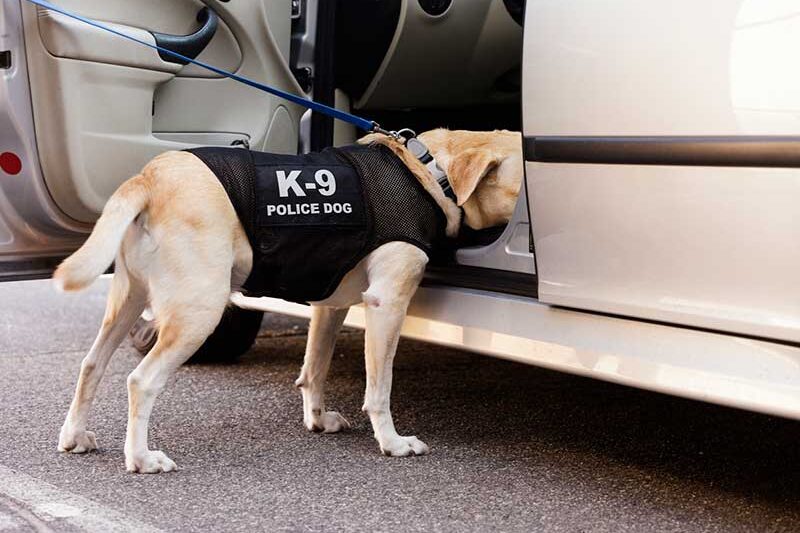Getting pulled over by the police is never a fun situation. Regardless of the circumstances, it may feel like you’re in a completely helpless situation. It turns out that you may have more protection than you realize. In April of 2015, the United States Supreme Court delivered its decision in US v. Rodriguez. This case answers the question: “Is the use of a K-9 unit, after the conclusion of a traffic stop and without reasonable suspicion of criminal activity, a violation of the Fourth Amendment prohibition on unreasonable search and seizures[1]?
The court found that, absent reasonable suspicion, police cannot lawfully extend a traffic stop in order to conduct a dog sniff without violating the Fourth Amendment. The extension of the stop occurs past its allowable duration to achieve the initial mission. In the case of a traffic stop, this means that an officer pulling someone over for speeding must conduct the stop in a reasonable period of time, for how those stops normally proceed. Anything past that period of time, absent reasonable suspicion of criminal activity (e.g. odor of Marijuana, odor of or physical evidence of alcohol use, visible evidence of drug paraphernalia etc.), does not allow the police to exceed the scope of the original mission.
While the language of this case may make it seem that a dog search is a minor inconvenience as far as time is considered, the principle of the law dictates that it is unrelated to the original mission of a normal traffic stop to conduct a dog search. Absent a new ruling by the supreme court either reversing this decision or establishing a K-9 search as a routine part of a traffic stop, the law is set in establishing that police cannot search your vehicle with a K-9 unit without reason to do so in the case of a traffic stop.
If you or someone you know has experienced an unlawful search, please reach out at 888-748-5464 (KING) to schedule your consultation with King Law today.

